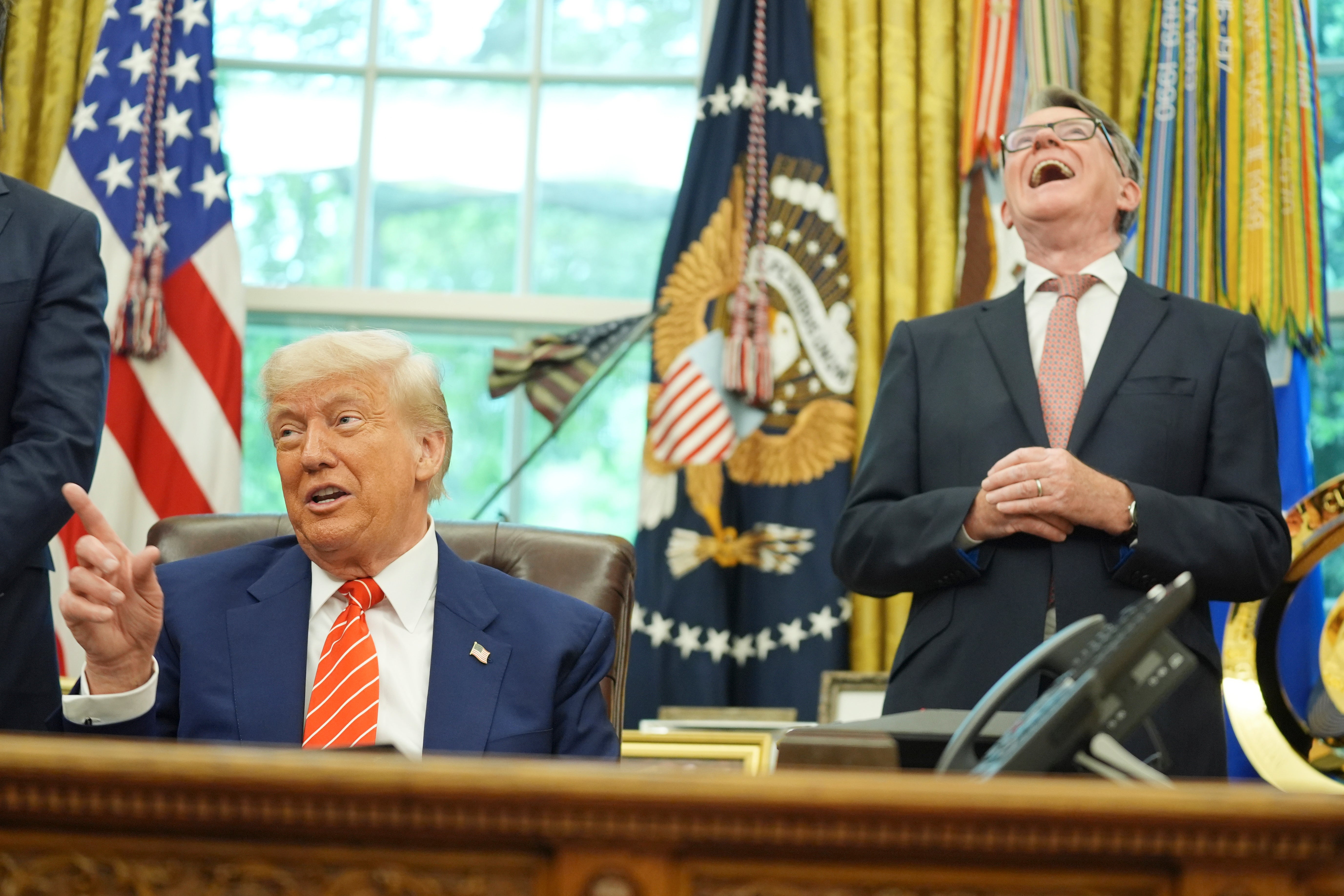This website uses cookies so that we can provide you with the best user experience possible. Cookie information is stored in your browser and performs functions such as recognising you when you return to our website and helping our team to understand which sections of the website you find most interesting and useful.
President Donald Trump threatened to impose 100 percent tariffs on toy-maker Mattel after the company said it would diversify its production to other countries, but not the United States.
Sitting in the Oval Office Thursday, Trump indicated he was not afraid to punish Mattel, the creator of Barbie, Hot Wheels, Uno, American Girl and more, for refusing to move its production in the U.S. – the ultimate goal of Trump’s tariffs.
It was in response to Ynon Kreiz, the chairman and CEO of Mattel, telling CNBC on Tuesday that it was unlikely the company would move production into the U.S as a result of tariffs; preferring instead to diversify production to other countries or just raise prices on U.S. consumers.
He said that even with tariffs, costs are too high in the U.S. to produce affordable toys for even the American consumer
“That’s ok. Let him go, and we’ll put a 100 percent tariff on his toy, and he won’t sell one toy in the United States, and that’s their biggest market,” Trump said.

Kreiz said that a “significant portion” of toy creation does occur in the U.S., such as design, development, product engineering and brand management, but that producing toys overseas allows them to create a “quality” and “affordable” product.
Approximately 20 percent of Mattel’s toy imports to the U.S. come from China.
Kreiz said the company hopes to bring that down to 15 percent next year and eventually 10 percent or less in 2027. This year, Mattel is relocating production of 500 of its toys from China to other locations, such as India.
When asked if Trump’s 145 percent tariffs on China, or other reciprocal tariffs, would inspire Mattel to move its toy production to the U.S., Kreiz reiterated, “We don’t see that happening.”
The company said it’s determined to keep 40 to 50 percent of its products priced at $20 or less, but it may have to raise some prices in the U.S.

Trump brushed that claim off, saying tariffs were “the most misunderstood thing … in any form of business.”
“Oftentimes, the country picks them up, oftentimes the company picks it up, the people don’t pick it up,” Trump asserted in the Oval Office on Thursday.
Global economists agree that tariffs do impact consumers because companies raise prices to offset the additional taxes on imported goods that they cannot absorb.
Last week, Trump acknowledged that his tariffs could lead to higher prices or less inventory, saying, “Well, maybe the children will have two dolls instead of 30 dolls.” He also suggested those two dolls could “cost a couple of bucks more than they would normally.”
But he has remained firm that tariffs will ultimately help the U.S. economy by increasing domestic production – a claim that economists are skeptical of.
The president said he believes Mattel is threatening to move production elsewhere besides the U.S. to negotiate a deal with him.



 Africana55 Radio
Africana55 Radio 
